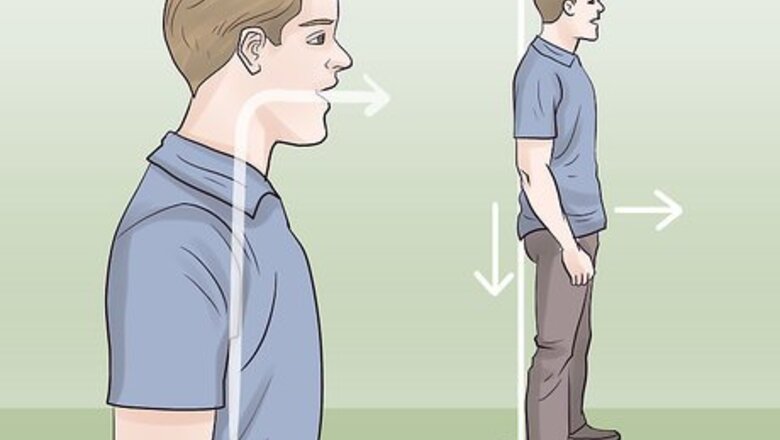
views
Lengthening Your Body
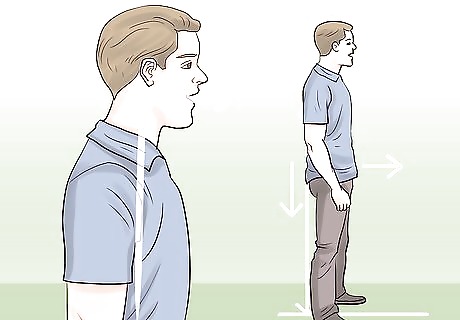
Stand up straight. Imagine lengthening your body through each vertebrae in your spine. Pretend your spine and head are being pulled up toward the sky. Point your tailbone towards the ground and the crown of your head towards the sky. As you point your tailbone down you will need to align your body by shifting your pelvis slightly forward. Practice the proper alignment of your body by standing against a wall. Your head, shoulders, hips, and heels should all touch the wall.
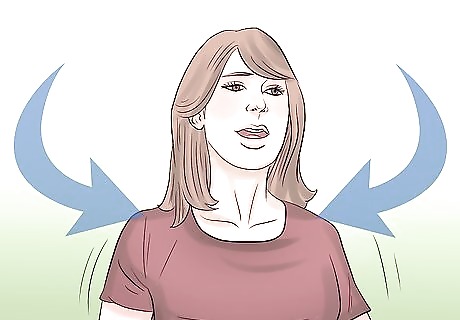
Relax your body. As you lengthen your body, don’t forget to relax and stay loose. It is not uncommon for your body to naturally tense up as you stand up straight. Relaxing your body will allow your diaphragm to expand and enable you to take a deeper breath. If you find that your body is too tense, try shaking out your body and then regaining your singing posture. If you are having a hard time relaxing, you can also try progressive muscle relaxation. Progressive Muscle Relaxation is a systematic relaxation technique that enables you to relax each part of your body.
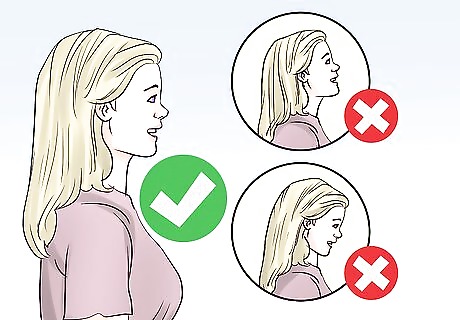
Keep your chin parallel to the ground. Your ears should be over your shoulders and the crown of your head should be pointed at the ceiling. This position will allow the maximum amount of air to flow in and out of your abdomen. Holding your chin too high can cause your vocal cords and tongue to be stretched too tight. Holding your chin too low can obstruct your airway.
Maximizing Your Breath
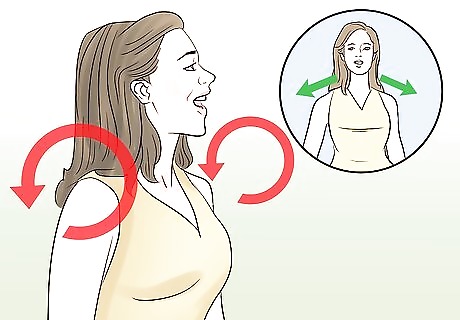
Rotate your shoulders to the back and down. In a circle, rotate your shoulders forward, up, and then back. Keep your shoulders in the back position. Relax them so that they are slanted down.
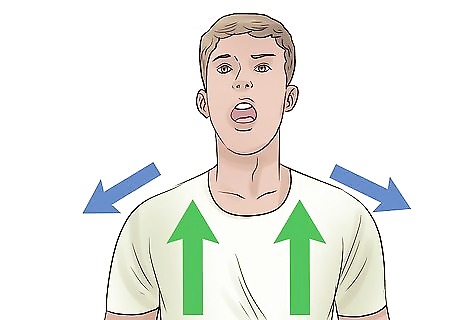
Hold your chest high. When your shoulders are slightly back, you will find that your chest naturally rises. Holding your chest high will create more room for your diaphragm to expand. Do not strain or puff out your chest.
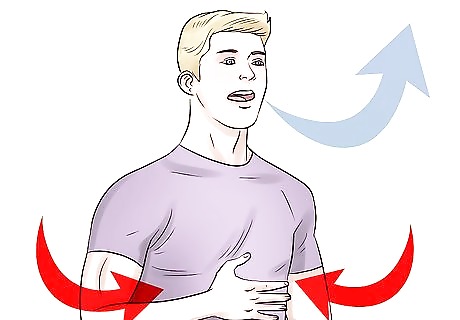
Tighten and relax your core. When you are breathing in, your core should be relaxed in order to expand to accommodate the air that you are taking into your body. Your core will tighten as you slowly release this air to project your voice. Test your breath ability by placing your hand on your belly. Take a deep breath in. Focus on breathing into your hand by expanding your belly. Do not raise your shoulders when you breathe.
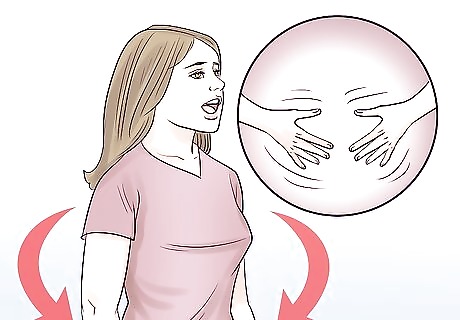
Place your arms by your sides. Your arms should be to each side of your body. Keep them relaxed and not rigid. Your hands should be slightly away from your body. Remember to also relax your hands and your fingers. Wiggle your fingers and wrists when you feel like you are too stiff.
Finding a Solid Foundation
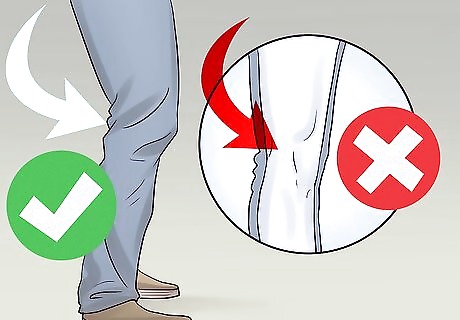
Avoid locking your knees. Relax your knees and legs. Bend your knees slightly to help remind you not to lock your knees. Locking your knees can interfere with circulation, causing you to become dizzy or lightheaded.
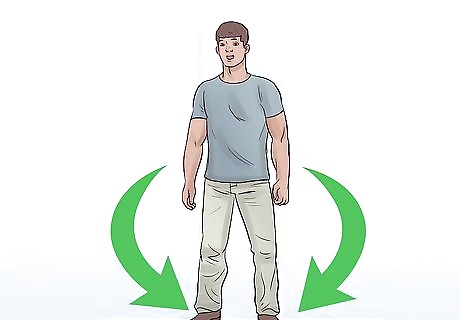
Stand with your feet shoulder width apart. You will want to stand with your feet apart but not too far apart. Aim to keep your feet under your shoulders. You can also put one foot slightly in front of the other foot in order to keep your balance.
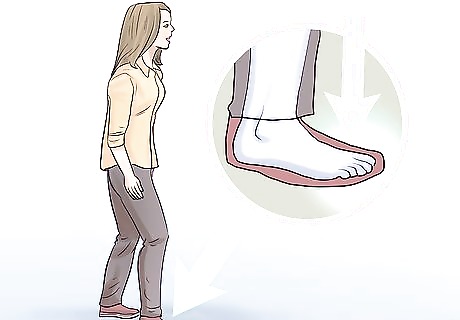
Shift your weight slightly forward. With one foot slightly in front of the other foot, shift your weight so that you are putting more weight on the balls of your feet. Shifting your weight to your heels will naturally cause you to lock your knees. Don’t lean too far forward as you will lose your balance.
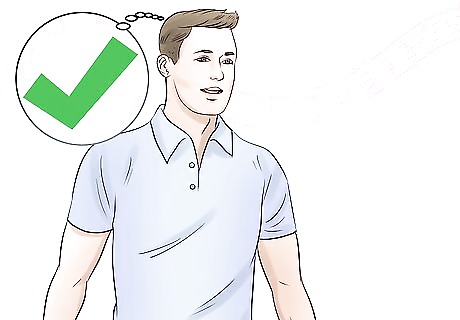
Test your new singing posture. Then, try singing again in a slouched posture. You should notice that you are able to project your voice much better when your body is in a good singing posture. Don’t worry if it feels foreign or uncomfortable. You will get used to this new posture with time.














Comments
0 comment